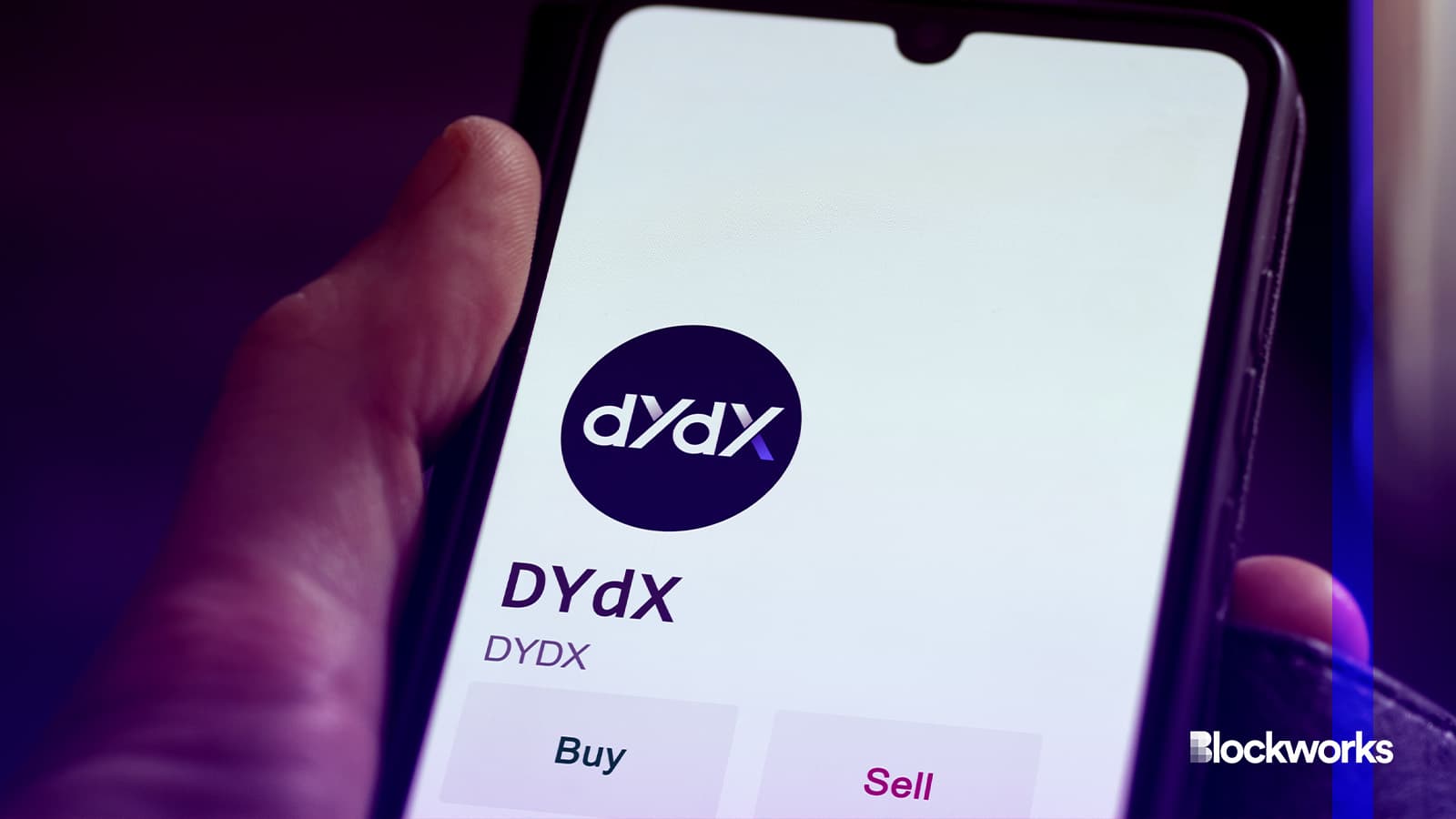DYdX steps closer to v4 by open-sourcing code
DYdX introduces a decentralized off-chain order book

Maurice NORBERT/Shutterstock modified by Blockworks
Decentralized crypto derivatives exchange dYdX has taken a key step towards launching its decentralized v4 by open-sourcing its code.
DYdX first revealed its intentions to transition from being an Ethereum layer-2 to becoming an appchain using the Cosmos SDK in June last year.
By open-sourcing its code, the dYdX team is hoping to receive community feedback and come to a consensus between its third-party validators and node operators before launching the dYdX mainnet.
According to information on DeFiLlama, dYdX currently has a total value locked (TVL) of $364 million, and the protocol’s token commands a market cap of $404.35 million. It has a fully diluted valuation of $2.27 billion and is one of the largest crypto derivatives exchanges today.
Read more: Decentralized exchange dYdX to build its own blockchain
In an interview with Blockworks, Antonio Juliano, founder of dYdX said that the team has been taking a progressive approach to decentralization.
“For a long time, we’ve been hybrid centralized and decentralized, meaning that we’ve had smart contracts that custody all the user funds, but the order book and matching engine, the trading infrastructure generally has been centralized until this point,” Juliano said.
A key feature of dYdX v4 will be that the dYdX chain will be fully decentralized, and its code will be completely open source. This means that dYdX trading will not collect trading fees from v4, and community members and stakeholders will be solely responsible for decision-making. Fees accrued will be redistributed to the dYdX stakers.
“We’re going to become just the software developers, and we will no longer be operating the network anymore,” Juliano said.
The dYdX exchange that exists today will still be operating for an undisclosed period of time, even if the dYdX app chain passes the on-chain vote for mainnet launch.
Challenges
One of the biggest challenges in creating a decentralized exchange, Juliano notes, was looking at ways to create a decentralized order book and matching engine systems.
According to Juliano, roughly 1,000 orders are placed on dYdX every second and the team wanted to design infrastructure that could support that level of scalability.
“When we started this project a year and a half ago, we looked at a bunch of different things, different [layer-2], and ultimately came away with the answer that no blockchain (at the time) could support the level of throughput that’s needed for an order book based product. What we did based on that is we built a decentralized off-chain order book,” he said.
Read more: Crypto funding: A focus on decentralized orderbook exchanges in $66M week
This means that the order book itself, though not on the blockchain and not in consensus, is run by the dYdX validators.
“This is similar to the mempool of Ethereum, but a very specialized mempool, that is an order book and all of the nodes themselves will run that. Only once an order gets matched does it actually go on-chain,” he said.
dYdX v4 has been audited by Informal Systems. The team has also completed internal security audits with engineers over the past few weeks, Juliano told Blockworks.
Over the following weeks, the team will look into migrating DYDX, the chain’s native token, onto v4 and stake to validators before officially launching mainnet.
Get the news in your inbox. Explore Blockworks newsletters:
- The Breakdown: Decoding crypto and the markets. Daily.
- 0xResearch: Alpha in your inbox. Think like an analyst.






